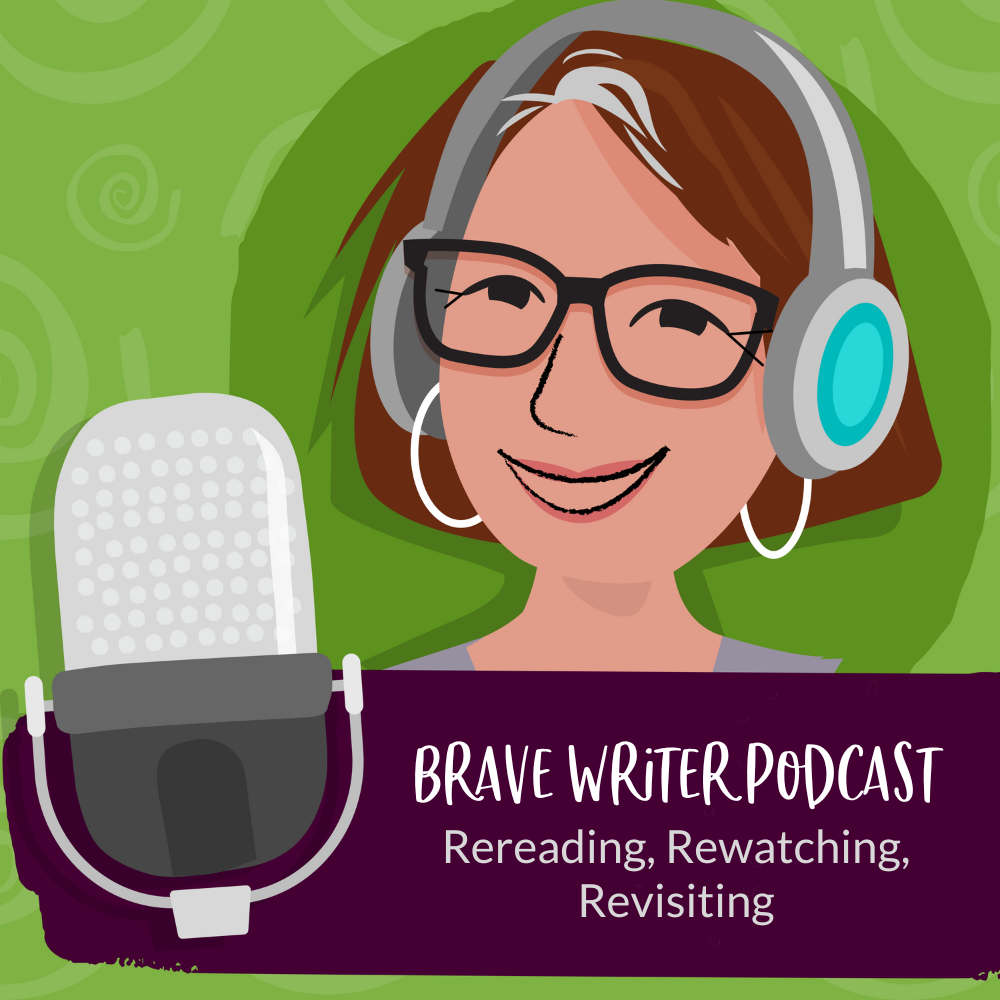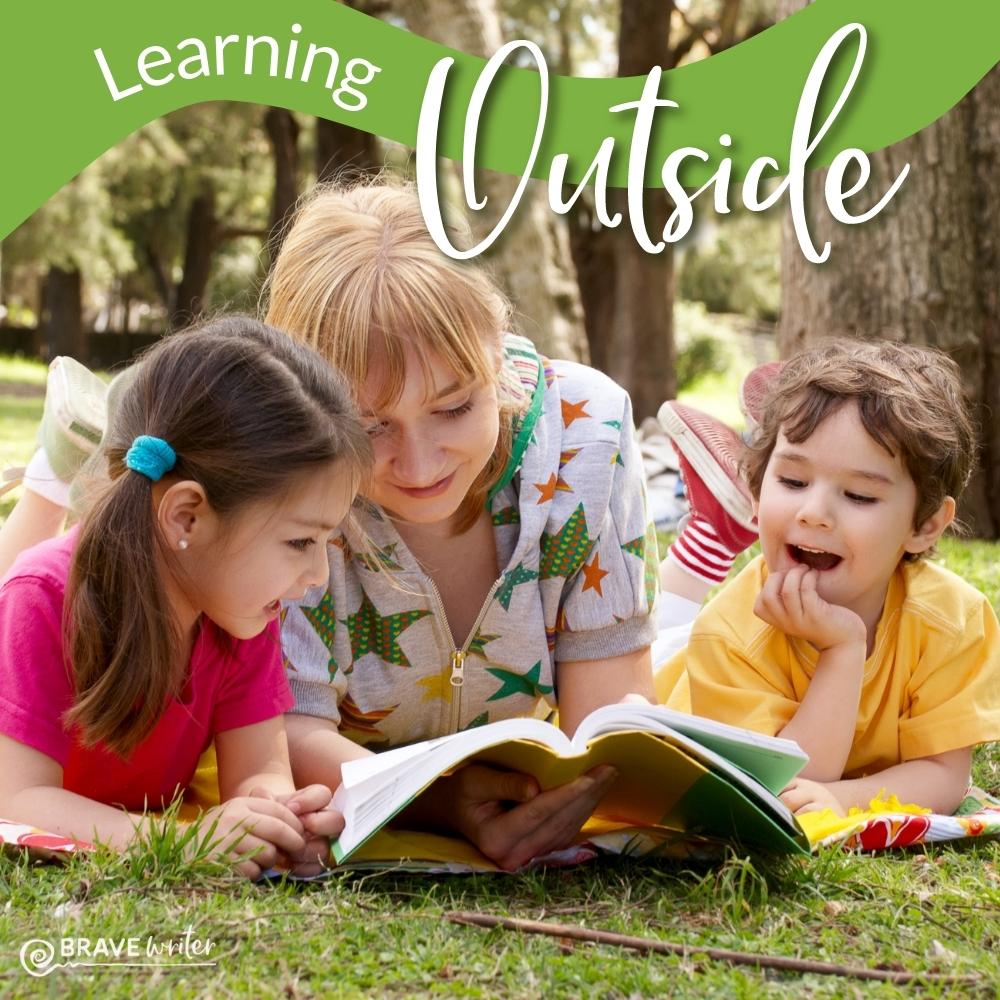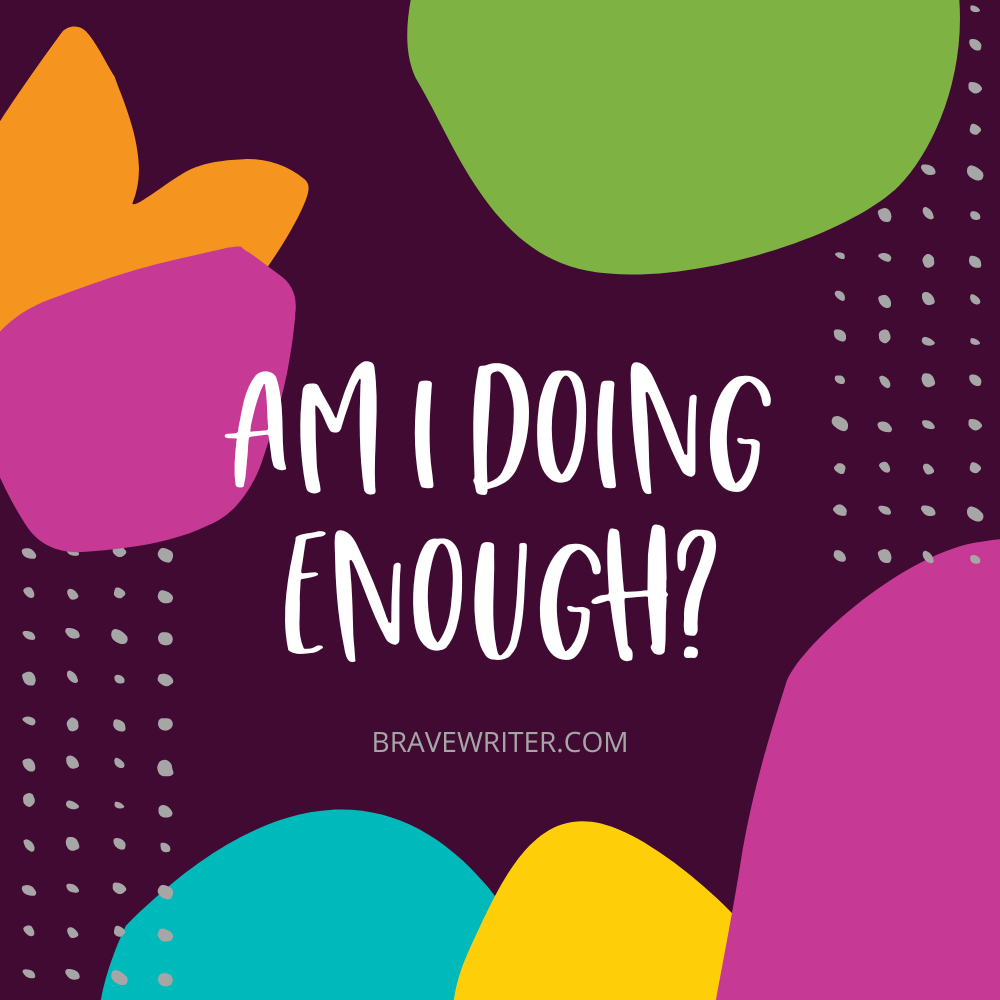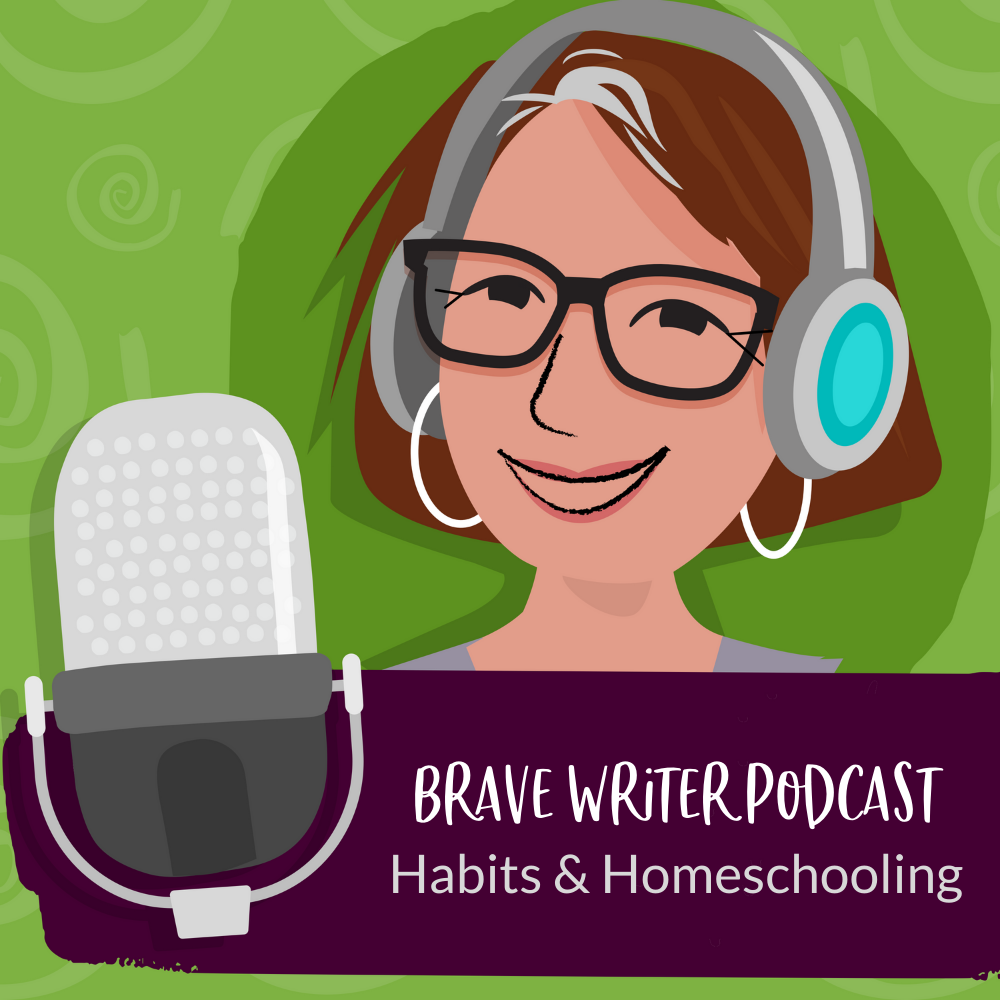
Do you ever wonder if there are benefits to letting your kids reread, rewatch, and revisit their favorite books, movies, and TV shows?
On today’s Brave Writer podcast, we delve into this practice and its numerous advantages for children and their families, highlighting how revisiting beloved stories can foster:
- critical thinking,
- emotional growth,
- and shared experiences.
Show Notes
Developing critical thinking skills
When children reread or rewatch their favorite stories, they often notice new details, ideas, and patterns they may have missed initially. This process enables them to think more deeply about the story, the characters, and the overall themes. As they grow older and their understanding of the world expands, they will likely find new layers of meaning in the same story. This promotes critical thinking, which is a valuable skill that can be applied in various aspects of life.
Emotional growth and connection
Revisiting favorite stories can also provide emotional support and a sense of stability for children. Familiar characters and settings can offer a comforting escape from real-life challenges or transitions. Moreover, discussing these stories with their parents or peers can foster emotional growth by helping kids understand their feelings and share them with others.
Bonding through shared experiences
One of the most significant benefits of encouraging kids to reread, rewatch, and revisit their favorite stories is the opportunity for families to bond through shared experiences. Parents can read or watch along with their children, creating moments of connection and conversation. They can also create family traditions around specific books, movies, or TV shows, strengthening their relationships and creating lasting memories.
Introducing the “90-minute idea”
We love the concept of the “90-minute idea,” which encourages parents to set aside 90 minutes to explore their children’s interests. By investing time in understanding their passions, parents can support their children’s learning and creativity. This approach can help uncover hidden talents, skills, and knowledge that may not be evident in traditional learning environments.
The joy of buddy reading
Buddy reading, where two or more people read the same book and discuss it, is a valuable experience for children. It allows them to share their thoughts, opinions, and emotions about the story, fostering a deeper connection with both the material and their reading partner. Parents can also participate in buddy reading by leaving margin notes in books for their children to discover, creating a unique, interactive experience.
Creating book clubs and discussion groups
Parents can support their children’s love for rereading and rewatching by organizing book clubs or discussion groups. These gatherings encourage children to engage in conversation and analysis, which can lead to a lifelong love for learning and intellectual exploration.
The practice of rereading, rewatching, and revisiting favorite stories has numerous benefits for children and their families. It promotes critical thinking, emotional growth, and shared experiences, while also encouraging a love for learning and intellectual exploration. By supporting this practice, parents can foster strong connections with their children and help them develop valuable life skills.
Resources
- Book Club Classes: Arrow Book Club and Boomerang Book Club
- Literature Handbooks with reading comprehension questions and book club party ideas: https://store.bravewriter.com/collections/literature-singles
- Sign up for our Text Message Pod Ring to get podcast updates and more!
- Send us podcast topic ideas by texting us: +1 (833) 947-3684
- Want help getting started with Brave Writer? Go to bravewriter.com/getting-started
- Sign up for the Brave Writer newsletter to learn about all of the special offers we’re doing in 2022 and you’ll get a free seven-day Writing Blitz guide just for signing up: http://go.bravewriter.com/writing-blitz
Connect with Julie
- Instagram: instagram.com/juliebravewriter
- Twitter: twitter.com/bravewriter
- Facebook: facebook.com/bravewriter
























